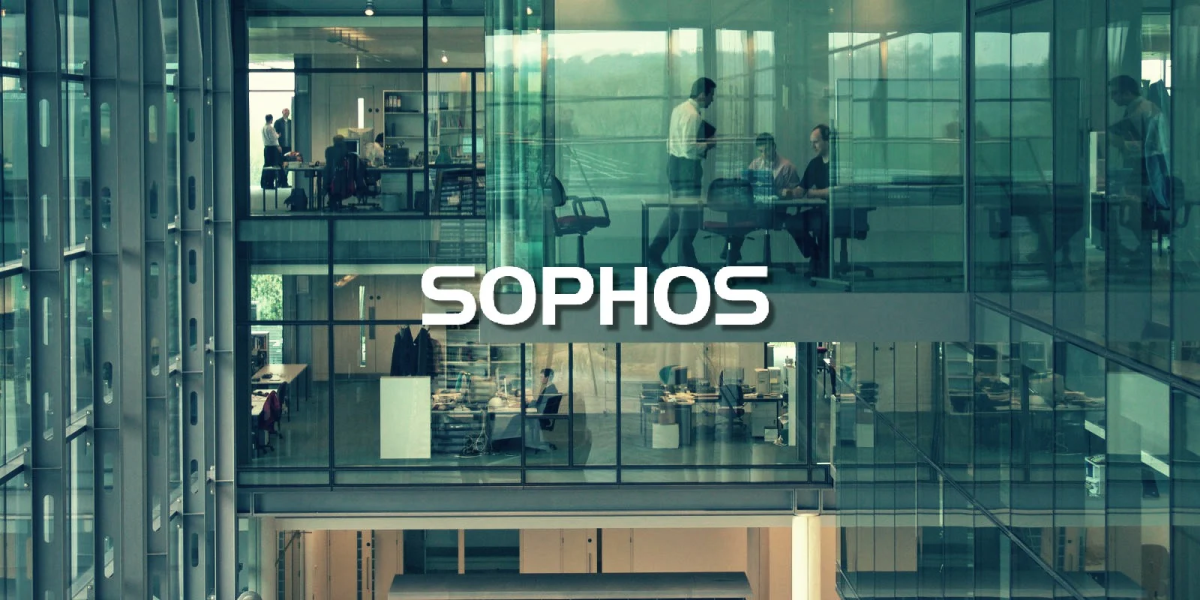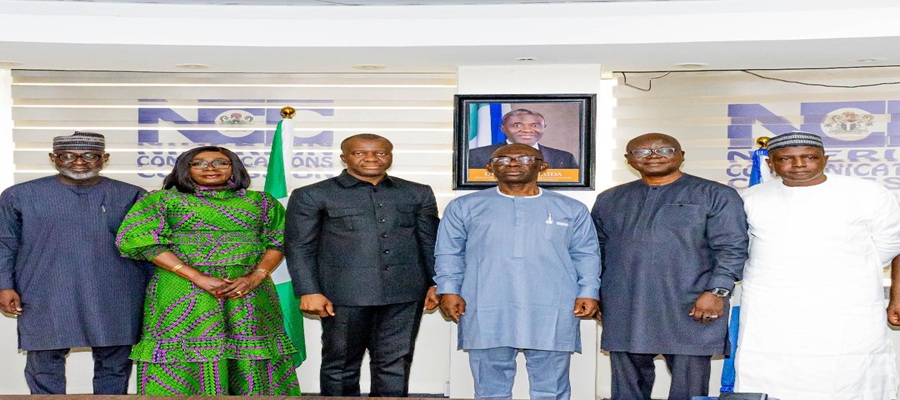Telecom
Sophos Intercept X Becomes Sole Leader in Omdia Universe Report for Comprehensive XDR Solutions

Sophos, a global leader in innovating and delivering cybersecurity as a service, today announced that its Sophos Intercept X Advanced with XDR solution has been named the top-ranked and sole leader in the Omdia Universe report for comprehensive extended detection and response (XDR) solutions.

The global research company ranked Sophos’ product the highest in nearly all capabilities categories – excelling above competitive offerings with industry-best threat response, deployment, management, pricing, and licensing – with Sophos Intercept X Advanced with XDR delivering “a dominant showing in Threat Response and Resolution, an area in which other solutions were underwhelming.”
According to Omdia’s analysis in the report, “Sophos should appear on organizations’ shortlist if they are in search of an enterprise-grade solution with intuitive usability across the board, when superior threat remediation with automated response actions for common scenarios is needed and if straightforward pricing and licensing are important, plus support from Sophos and its partners.”
“Omdia believes that the best Comprehensive XDR solutions deliver a fundamentally different approach to threat detection, investigation and response (TDIR) – one that’s faster, easier, more automated, and ultimately more effective,” says Eric Parizo, managing principal analyst, Omdia.
“With this criteria in mind, it should be no surprise that Sophos Intercept X Advanced with XDR is the overall top ranked solution in the 2022-23 Comprehensive XDR Omdia Universe.”
Sophos Intercept X with XDR combines anti-ransomware technology, deep learning artificial intelligence, exploit prevention, and active adversary mitigations to stop attacks.
All Sophos offerings are powered by threat intelligence from Sophos X-Ops, a cross-operational task force linking SophosLabs, Sophos SecOps and SophosAI, and are easily managed in the cloud-native Sophos Central platform or by Sophos Managed Detection and Response, a 24/7 managed detection and response (MDR) service used by more than 13,500 organizations.
Sophos recently added the ability to integrate vendor agnostic telemetry from third-party security technologies into its MDR service, providing unprecedented visibility and detection across diverse operating environments. The same vendor agnostic telemetry integrations will be available in the Sophos Intercept X Advanced with XDR in 2023.
The Omdia Universe is Omdia’s flagship comparative research vehicle. It is a vendor assessment approach designed to educate and inform the plethora of technology decision makers and end-users that engage with the broad Informa Tech portfolio.
Telecom
NCC Committed to Regional Digital Integration – Maida


L-R – Engr. Aliyu Yusuf Aboki , Executive Secretary WATRA; Mrs Nneena Ukoa, Head Public Affairs, Nigerian Communications Commission; Hon. Clarence K. Massaquoi, Chairman Board of Commissioners, Liberia Telecommunications Authority; Kelechi Nwankwo, Director Corporate planning, strategy and Risk Management(NCC); Hon. Ben Fofana, Commissioner with oversight responsibility for Licensing and Regulation (LTA); Usman Mamman Director, Licensing & Authorization (NCC) during a courtesy visit to the Commission’s Headquarters in Abuja on 30th January, 2026.
Telecom
ITU Top Director Visits NITDA, Boosts Nigeria’s Digital Literacy Push

Dr. Cosmas Luckyson Zavazava, Director Telecommunication Development Bureau of the International Telecommunication Union (ITU), has paid a courtesy visit to the the National Information Technology Development Agency (NITDA) in Abuja, reinforcing growing cooperation on digital development.

NITDA
Dr. Zavazava was accompanied by the ITU Regional Director for Africa, Dr. Emmanuel Manasseh, as part of the ITU delegation.
The delegation was received on behalf of the Director General of NITDA by the Director of Corporate Planning and Strategy, Dr. Warowei Dimie, alongside other directors of the Agency.
The visit provided a platform for strategic engagement and exchange of ideas on key digital development challenges facing Nigeria, Africa, and other developing regions, with a shared focus on inclusive and sustainable ICT growth.
Speaking on behalf of the NITDA Director General, Dr. Dimie reaffirmed the Agency’s commitment to deepening collaboration with ITU, describing the organisation’s global experience as a valuable asset for transferring tested solutions and best practices to Nigeria’s local context.
He noted that digital skills and capacity building featured prominently in the discussions, as Nigeria pursues its ambitious target of achieving 70 percent digital literacy nationwide by next year, with encouraging progress recorded through partnerships with the private sector and other stakeholders.
The adoption of Nigeria’s National Digital Literacy Framework was highlighted as a major milestone, providing a structured and inclusive approach to skills development across different segments of society.
Attention was also drawn to the persistent challenge of limited connectivity in rural and underserved communities, with participants emphasising targeted interventions such as grassroots digital training and the deployment of National Youth Service Corps members as digital literacy ambassadors.
In his remarks, Dr. Zavazava outlined ITU-BDT’s mandate to bridge the digital divide, promote inclusive ICT development, strengthen regulatory frameworks, and support member states in building resilient digital infrastructure.
He noted that these priorities strongly align with Nigeria’s digital transformation aspirations, adding that ITU works across its 194 member states through regional and area offices, including its West Africa office in Dakar, Senegal, and the Africa regional office in Addis Ababa, Ethiopia.
Dr. Zavazava further highlighted ongoing collaboration with Nigeria on initiatives such as digital skills development, broadband infrastructure mapping, and cybersecurity.
He disclosed that Nigeria is among 11 sub-Saharan African countries benefiting from a €15 million ITU-European Commission project on broadband infrastructure mapping and modelling, while also participating in global cybersecurity drills organised by ITU in partnership with the United Arab Emirates, which attracted over 136 countries in the last edition.
The courtesy visit underscored the importance of sustained collaboration between international development institutions and national agencies, reaffirming the shared commitment of ITU and NITDA to leveraging ICTs for sustainable development, innovation, and inclusive socio-economic growth in Nigeria.
Telecom
Airtel Nigeria Commits to Upgrade of its Network Infrastructure for Improved Quality of Service

Airtel Nigeria has unveiled a robust update on a range of network, infrastructure and technology advancements that position the company at the forefront of quality of service leadership in Nigeria’s telecommunications industry.

Announced at its first media roundtable of 2026, the updates reflect sustained investments made over the past 12 to 24 months and signal an accelerated push to stay ahead of surging data demand in a rapidly digitising economy.
Speaking to senior editors and industry correspondents, Airtel Nigeria Chief Executive Officer, Dinesh Balsingh, said the company’s strategy is anchored on deliberate scale, depth and resilience.
“Over the last two years, we have invested with discipline and clarity to strengthen our network nationwide. Those investments are now translating into measurable improvements in performance, customer experience and reach, including in underserved and hard to reach communities,” he said. “In 2026, we are accelerating these upgrades because Nigeria’s data appetite is growing, and leadership in this industry will belong to those who plan ahead.”
At the core of Airtel Nigeria’s quality of service drive is the rapid expansion of its network footprint. Since December 2023, the company has increased the number of network sites by 15.5%, adding 2,242 new sites and bringing its total to nearly 16,711 nationwide. Further deployments are planned in 2026 to strengthen coverage, capacity and resilience across urban and rural locations.
Network capacity upgrades have also reached significant scale. In 2025, Airtel completed capacity enhancements on 30% of its sites, covering over 5032 sites nationwide.
Today, 99% of Airtel Nigeria’s sites deliver high-speed 4G mobile broadband, establishing the operator as a full nationwide 4G network. This year, capacity upgrades are being extended to more sites to sustain performance as data usage continues to rise.
According to Harmanpreet Singh Dhillon, Chief Technology Officer, spectrum depth and optimisation remain critical to network quality. “We have increased our 4G spectrum by 10MHz and we are actively optimising our holdings. These actions allow us to support higher data throughput, better speeds and more consistent service, especially in high-traffic areas,” he said.
Airtel Nigeria is also accelerating its 5G rollout. Over the last three months, the company has more than doubled the number of active 5G sites. The accelerated 5G upgrade happening now will connect the top 20 Nigerian cities to high-speed 5G networks, with a significant part of Airtel’s network in these cities becoming 5G-enabled in the coming year.
Beyond terrestrial infrastructure, Airtel is extending connectivity through space-based solutions. The company has established and signed partnerships with satellite providers OneWeb and Starlink, enabling enterprise-grade connectivity for businesses in remote locations, hard to reach areas and operational outposts. Recently, Airtel announced Nigeria’s first Direct-to-Cell partnership with Starlink, a breakthrough that will allow customers to remain connected while travelling through deep remote areas and enable small rural communities to access Airtel’s digital and fintech services.
The backbone supporting these services continues to expand. Airtel Nigeria has built an extensive fibre footprint across almost all states, developed through years of sustained deployment. Following the announcement to double capital expenditure last year, the company committed to expanding its fibre network by 25%, and intensive rollout activity is ongoing across cities and states. Airtel has also confirmed plans to extend its fibre footprint even further, both within major cities and between states.
A pivotal national milestone is also on the horizon. Nigeria currently relies on a single internet submarine cable landing and breakout point in Lagos. Airtel Nigeria has announced that it will launch a second internet breakout from the South of Nigeria, leveraging the 2Africa submarine cable. In partnership with 2Africa, Airtel will shortly begin carrying internet breakout traffic from Kwa Ibo in Akwa Ibom State.
“This will create a faster and alternative path for large parts of the North and South, improve resilience for the entire ecosystem. Airtel is proud to take the lead in making this happen,” Balsingh said.
Underpinning these advances is a robust IT and cloud backbone. Airtel Nigeria operates an enterprise-grade private cloud with thousands of virtual machines, managing massive storage and compute power across locations.
The infrastructure includes large GPU clusters, supporting AI-driven applications such as fraud detection, intelligent network self-healing and advanced customer analytics.
The company recently announced the upcoming launch of its hyperscaler-ready 38 megawatt data centre in Eko Atlantic. This is designed for Nigeria’s next phase of digital growth, powered by AI.
From a customer access perspective, Airtel Nigeria maintains one of the largest retail footprints in the country. Its products and services are available in over 200,000 outlets nationwide, supported by more than 4,000 exclusive shops across all local government areas and 250 flagship stores.
Balsing added that, “Quality of service today is about resilience, redundancy and intelligence, and that is what Airtel is delivering. From fibre to cloud to satellite-enabled connectivity, we are building a platform that allows Nigerian businesses to scale with confidence, regardless of location.”
He reaffirmed Airtel Nigeria’s long-term commitment to the country. “Our focus is consistent investment, disciplined execution and deep confidence in Nigeria’s future,” he said.
Aside from Singh Dhillon, other members of the Airtel Nigeria leadership on hand with subject matter expertise at the roundtable included Director, Airtel Business, Ogo Ofomata; Director, Marketing, Ismail Adeshina; Director, Information Technology, Kemi Ariyo; and Director, Corporate Communications and CSR, Femi Adeniran.

 General News2 days ago
General News2 days agoGlobacom Donates ₦1Bn to Lagos State Security Trust Fund

 Telecom2 days ago
Telecom2 days agoAirtel Nigeria Commits to Upgrade of its Network Infrastructure for Improved Quality of Service

 E-Business2 days ago
E-Business2 days agoPwC Reveals AI Scaling Gap Slows Africa’s Digital Transformation

 News2 days ago
News2 days agoCIoD, NIPSS Partner to Deepen Governance, Leadership Standards

 News2 days ago
News2 days agoNRS Chairman Outlines Ways Nigeria can Move from Potential to Economic Prosperity

 E-Financial2 days ago
E-Financial2 days agoEcobank Profit Jumps 29 Percent to N950Bn

 General News2 days ago
General News2 days agoWIEG to host Nigeria’s first International Investment Summit in Lagos

 News2 days ago
News2 days agoOrya, Ex-NEXIM MD Jailed 490 Years for N2.4Bn Fraud



























